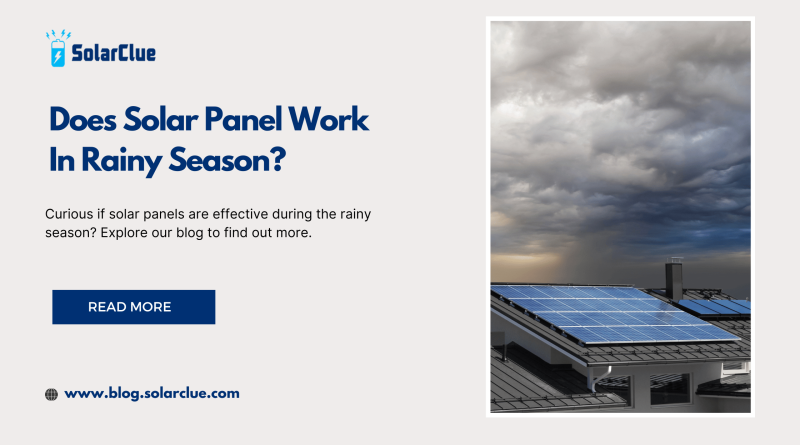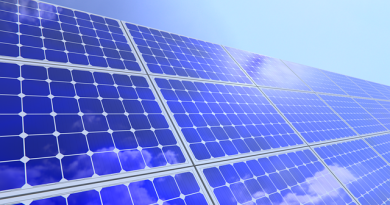Does Solar Panel Work In Rainy Season?
Solar panels are an increasingly popular choice for sustainable energy. However, many potential users worry about their effectiveness during cloudy or rainy days. This blog aims to dispel common myths about solar panels and rainy conditions, providing a comprehensive analysis of their performance and practical tips to optimize energy production during less sunny periods.
Table of Contents
- 1 How Solar Panels Function in Cloudy and Rainy Conditions
How Solar Panels Function in Cloudy and Rainy Conditions
Solar Panel Technology Overview
Solar panels convert sunlight into electricity using photovoltaic (PV) cells. These cells are made of semiconductor materials, typically silicon, which generate an electric current when exposed to sunlight. This current is then converted into usable electricity for homes and businesses.
Solar Irradiance and Cloud Cover
Solar irradiance refers to the power of solar radiation received per unit area. On cloudy days, solar irradiance decreases, reducing the amount of sunlight hitting the PV cells. However, solar panels can still generate electricity from diffuse sunlight, although at a lower efficiency compared to clear, sunny days.
Impact of Rain on Solar Panel Efficiency
Rainy days can impact solar panel performance, but not always negatively. While rain reduces direct sunlight, it also helps clean the panels by washing away dust and debris, potentially improving efficiency over time. The reduction in efficiency on rainy days varies but is generally between 10-25%.
Maximizing Solar Energy Production During Rainy Seasons
Regular Maintenance and Cleaning
Maintaining clean panels ensures they operate at maximum efficiency. Regular cleaning, especially after heavy rains, removes any dirt or debris that may have accumulated, allowing more sunlight to reach the PV cells.
Use of High-Efficiency Panels
High-efficiency solar panels are designed to perform better under low-light conditions. Investing in these panels can help maintain higher energy production during cloudy and rainy days.
Energy Storage Solutions
Battery storage systems can store excess energy generated during sunny periods for use during cloudy or rainy days. This ensures a continuous supply of solar energy regardless of weather conditions.
Comparative Analysis of Solar Panel Efficiency in Different Weather Conditions
| Weather Condition | Solar Panel Efficiency |
|---|---|
| Clear, Sunny Days | 100% |
| Partly Cloudy | 80-90% |
| Overcast | 60-70% |
| Rainy | 50-60% |
| Heavy Rain | 40-50% |
Conclusion
Despite common misconceptions, solar panels are effective even during cloudy and rainy days. By understanding their functionality and implementing strategies to maximize efficiency, solar energy can remain a reliable and sustainable power source year-round. Regular maintenance, the use of high-efficiency panels, and energy storage solutions are key to optimizing solar energy production during the rainy season.
Here at SolarClue®, we offer a smart, practical, and “beautiful” solution. You will be answered for all the questions related to Solar.
We provide all kinds of brands that are the Best Solar panels in India.
If you are the one who is planning for the solar power system. Don’t hesitate to contact our team!
Looking forward to empowering you with solar energy, just like hundreds of our other clients!
FAQs
1: Do solar panels work in the rain?
Yes, solar panels can still generate electricity during rain, though at reduced efficiency. They benefit from rain cleaning away dirt and debris.
2: How much does rain reduce solar panel efficiency?
Rain typically reduces solar panel efficiency by 10-25%, depending on the intensity of the rain and cloud cover.
3: Can solar panels generate power on cloudy days?
Yes, solar panels can generate power from diffuse sunlight on cloudy days, though at lower efficiency than on sunny days.
Q4: What are the best solar panels for rainy conditions?
High-efficiency panels, such as those using monocrystalline silicon, perform better in low-light conditions, making them ideal for areas with frequent rain.
Q5: How can I optimize my solar panel system for rainy weather?
Regular maintenance, using high-efficiency panels, and installing energy storage solutions can help optimize solar energy production during rainy weather.



